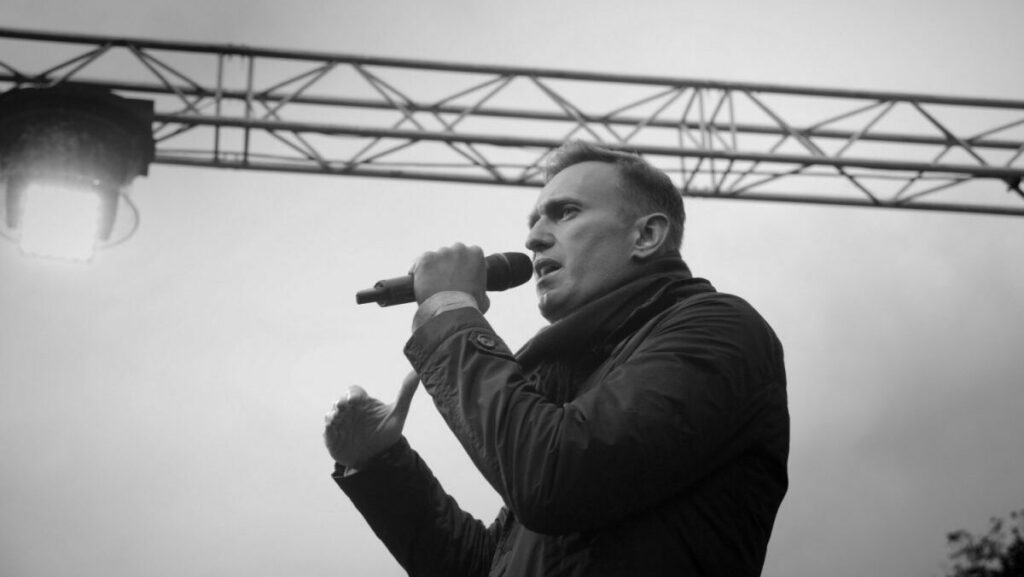International Politics, Travel Journalism
Russia’s Christian Dissidents
“Everything will be alright. And even if it isn’t, we’ll have the consolation of having lived honest lives.” –Alexei Navalny in note smuggled from prison to Yevgenia Albats in April 2021
Russian dissident Alexei Navalny must have known he was a dead man when he boarded a flight back to Russia in January 2021. In August 2020, he’d been poisoned with a Novichok nerve agent and medically evacuated to Berlin, where he miraculously survived. Navalny was the most prominent opponent of the Putin regime, an anti-corruption activist and politician who had organized anti-government protests and boasted millions of YouTube followers. He’d been arrested and jailed on fabricated charges before, and upon returning to Russia was promptly imprisoned again. He went missing in December 2023 for several weeks, reappearing in the brutal “Polar Wolf” penal colony in the Arctic Circle.
On February 16, Navalny suddenly fell unconscious after a walk and died. He was only 47 years old, and his family reported that he’d been as healthy as he could be under the circumstances. With his death, the opposition movement in Russia has been beheaded, as Putin surely intended. He also joins a growing list of dissidents murdered for speaking out against the regime. In 2015, almost exactly nine years ago, dissident politician Boris Nemtsov was shot to death within sight of the Kremlin. Nemtsov was an Orthodox Christian, and his murder sparked fear amongst Russia’s Christians.
Putin’s use of the Russian Orthodox Church as a potent repository of cultural identity has won him the loyalty of the ecclesiastical hierarchy, which has a longstanding tradition of being coopted by and cooperating with the state—but he is a staunch opponent of religious liberty for any non-Orthodox Christians, especially evangelicals. Inconveniently for those who weirdly wish to view Putin as a defender of Christianity, many of the dissidents he persecutes are Christian. Indeed, Navalny spoke of his own Christianity in the closing statement of his 2021 trial, explaining that his beliefs are at the heart of his political commitments—comments which, the Moscow Times noted at the time, were sure to irritate his many secular admirers.
“If you want, I’ll talk to you about God and salvation,” Navalny told the judge. “I’ll turn up the volume of heartbreak to the maximum, so to speak. The fact is that I am a Christian, which usually rather sets me up as an example for constant ridicule in the Anti-Corruption Foundation, because mostly our people are atheists, and I was once quite a militant atheist myself.” Navalny’s courtroom speech, which detailed how his Christian beliefs informed his actions, unsurprisingly received little coverage in the West—but in it, Navalny spoke in the tradition of great Christian dissidents such as Aleksandr Solzhenitsyn, who spent eight years in the gulag himself:
But now I am a believer, and that helps me a lot in my activities, because everything becomes much, much easier. I think about things less. There are fewer dilemmas in my life, because there is a book in which, in general, it is more or less clearly written what action to take in every situation. It’s not always easy to follow this book, of course, but I am actually trying. And so, as I said, it’s easier for me, probably, than for many others, to engage in politics … [Quoting from the Sermon on the Mount]: Blessed are those who hunger and thirst for righteousness, for they will be satisfied. I’ve always thought that this particular commandment is more or less an instruction to activity. And so, while certainly not really enjoying the place where I am, I have no regrets about coming back, or about what I’m doing. It’s fine, because I did the right thing. On the contrary, I feel a real kind of satisfaction. Because at some difficult moment I did as required by the instructions, and did not betray the commandment.
Navalny was not the only persecuted Russian to use a courtroom appearance to detail the Christian foundation of his dissidence. In December 2019, the student activist and blogger Yegor Zhukov, dubbed “Moscow’s New Face of Dissent” for his YouTube videos, was tried for “inciting extremism” after participating in a wave of political protests. On December 4, Zhukov delivered a powerful speech, rebutting the Putin regime’s claim to being the “last defender” of “the institution of the family” by highlighting the dire state of the Russian family; the widespread alcoholism, suicide, and despair; and top-down atomization deliberately facilitated by the state.
Christianity, he stated, is the antithesis of all this, “based on the story of a man who has decided to put the suffering of the whole world on his shoulders, the story of a man who has taken responsibility in the greatest possible sense of the word” and who gave us the command to ‘love your neighbor as yourself’—this is the main phrase of the Christian religion.” Russia, Zhukov said, has “become a nation that has forgotten how to love.” The speech attracted a lot of attention, and the lightness of his sentence—three years probation—was likely due to his public support. Zhukov began hosting at the Echo of Moscow radio station, interviewing dissident figures including Navalny—but on August 30, 2020, Zhukov was brutally beaten by two men and taken to the hospital.
Since then, Zhukov seems to have vanished, with no known public appearances and silent social media networks. It makes his concluding remarks five years ago seem eerie:
The only traditional value that the current Russian state truly honors and strengthens is autocracy. Autocracy that tries to break the life of anyone who sincerely wishes the best for their homeland, who doesn’t hesitate to love and take responsibility. As a result, the citizens of our long-suffering country had to learn that no good deed goes unpunished, that the authorities are always right simply because they’re the authorities, that happiness here may be possible—but not for them. Having learned that, they began to gradually disappear.
There are many other examples. On July 18, 2021, Pastor Stanislav Moskvitin, who pastors a member church of the Russia Council of Christian Evangelical Churches, was arrested on allegations of “brainwashing” and running a “cult” (a designation leveled by the Russian Orthodox Church against Protestants who proselytize). He was sentenced to one and a half years in a penal colony on March 12, 2023, and the Ministry of Justice stated that his church should be liquidated. Jehovah’s Witnesses are the subject of frequent home raids (over 1,200 recorded) and imprisonment; one report noted that: “Multiple evangelical Protestant groups have been persecuted with Protestant Christians often being fined for ‘illegal missionary activity.’” The charges, of course, are often worded to make persecution appear to be legitimate prosecution.
READ THE REST OF THIS COLUMN AT THE EUROPEAN CONSERVATIVE








